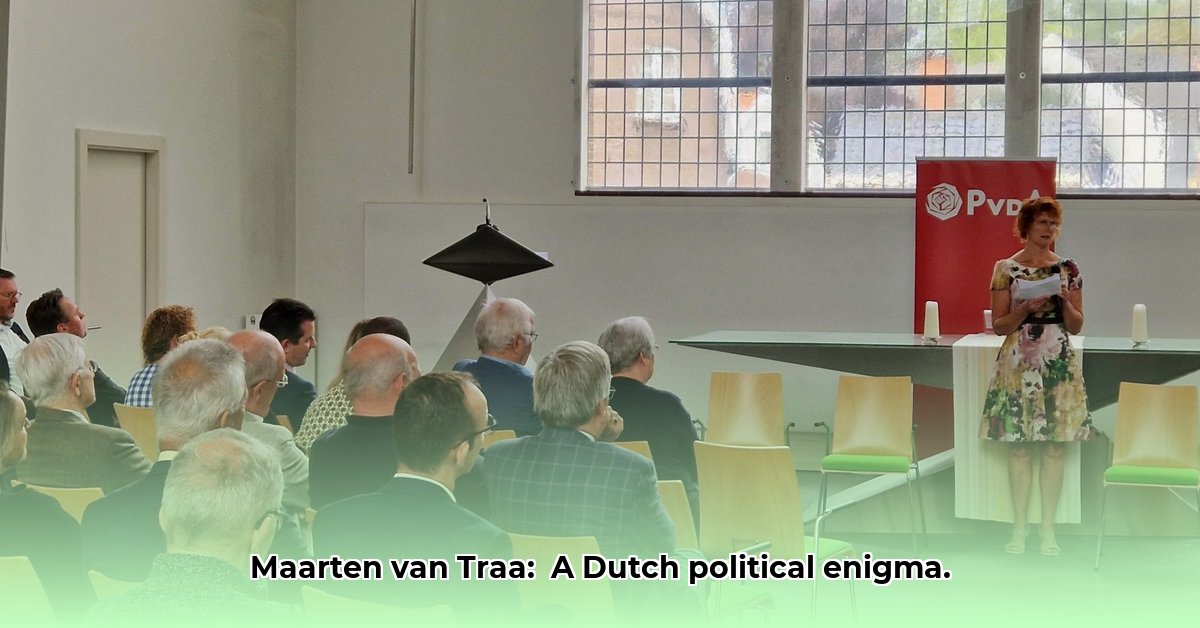
PvdA Maarten Van: A Life Dedicated to Justice and Reform
Maarten van Traa (1945-1997), a prominent figure within the Partij van de Arbeid (PvdA, Labour Party), left an indelible mark on Dutch politics and the country's legal landscape. His journey, from a journalist's keen observation to leading high-profile inquiries, shaped crucial reforms and continues to resonate today. How did a journalist's background influence his political career, and what enduring legacy did he leave behind? This biographical narrative explores the life and times of this influential figure.
From Inkwell to Parliament: Early Years and Political Ascent
Born in 1945, Van Traa's early career in journalism provided a foundation for his later political successes. Spending years honing his skills as a news reporter, he developed an acute understanding of public opinion and the power of communication. This background wasn't merely about writing news; it was about connecting with people and understanding their perspectives – a skill crucial for navigating the complexities of Dutch politics. His transition to the PvdA seems a natural progression, a move likely fuelled by a deep-seated belief in social justice and a desire for impactful change. Rising through the party's ranks, his appointment as international secretary broadened his global perspective, instilling a commitment to international cooperation that would significantly influence his later work.
The IRT Inquiry: Exposing Systemic Failures
A pivotal moment in Van Traa's career was his chairmanship of the Committee of Inquiry into the Rijksrecherche (IRT), the Dutch National Criminal Investigation Service. This wasn’t a routine investigation; it was a deep dive into the heart of Dutch law enforcement, scrutinizing its investigative methods and revealing systemic failures. The inquiry, initiated amid public outrage over the disappearance of millions of guilders in drug profits, unearthed significant issues within the IRT, leading to major reforms in the organization. Imagine the pressure: balancing the need for transparency and fairness whilst navigating the intense scrutiny of various parties involved—a testament to his integrity and leadership. This inquiry wasn't just about uncovering malpractice; it became a catalyst for significant changes in Dutch policing practices.
A Champion for Peace: Beyond Parliamentary Walls
Beyond his parliamentary duties, Van Traa was a passionate advocate for peace and social justice. His involvement in the heated debates surrounding cruise missile deployment and his broader contribution to the peace movement reflect a commitment that extended beyond the constraints of party politics. His international experiences likely heightened his awareness of the devastating human cost of conflict, solidifying his belief in international cooperation. This side of Van Traa highlights the multifaceted nature of his political engagement – a commitment to effective governance combined with unwavering advocacy for peace and justice. How did his international experience shape his firm stance on these crucial issues? His dedication extended beyond simply adhering to party lines; it reflected a strong personal belief system.
A Legacy Cut Short: Enduring Influence on Dutch Law Enforcement
Van Traa's untimely death in 1997, shrouded in mystery at the time, tragically ended a remarkable career. Yet, his legacy continues to shape Dutch politics and law enforcement. The Special Investigation Powers Act, a direct outcome of the IRT inquiry, remains a significant piece of legislation, demonstrating his dedication to strengthening accountability and transparency within the legal system. His work wasn’t merely about identifying problems; he instigated a fundamental restructuring of investigative practices and the related legal framework, laying the foundation for a more accountable and ethical law enforcement system. The impact of his work continues to be felt, and the Special Investigation Powers Act stands as a testament to his enduring influence.
Key Takeaways:
- Van Traa's background in journalism equipped him with crucial communication and analytical skills.
- The IRT inquiry, chaired by Van Traa, exposed systemic flaws in Dutch law enforcement, leading to significant reforms.
- His unwavering commitment to peace and social justice defined his political persona beyond parliamentary duties.
- The Special Investigation Powers Act, a direct result of the IRT inquiry, stands as a lasting tribute to his legacy.